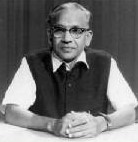Translated from the Tamil by Dr. S. Vincent
Nobody could tell whether the perched sky was struck by some abrupt happiness or misery to erupt in such a menacing downpour. The cities and the villages flooded in no time. Incessant lightning and thunder only amplified the severity. Yes, I am talking about the torrential rains that struck Chennai, Madurai, and other places a few months back. Children living in terraced houses watched the coconut trees swaying in the storm from their windows. They wanted to go out, but the elders restrained…
Few made paper boats to float on the water streaming down in front of their houses. The boats sailed till the wind shoved them sideways or made them go upside down altogether. Children laughed and clapped. They made new boats and went at it all over again.
At the same time in Chennai, on the celebrated Cooum river, several boats were afloat. However, they were not made of paper but roofs.
Children and elders of the kuppam[1] huddled as they watched. It was no game. Nothing meant for entertainment. There was neither excitement nor joy in their eyes.
Kuppusamy and his family were also among them. He was a fisherman who went into the sea on his kattamaran. He and his wife and Thulukkanam, their ten-year-old son stood restless like the fishes brought to the shore alive. Their hut went like a paper boat in the floods. Water came and simply swept it away…
More than the parents, ten-year-old Thulukkanam was bursting with frustration. He had kept fifteen naya paise[2] tied in a piece of rag over the raft under the thatched roof. He had to haggle so much with his father to save it.
The hut did not really worry Thulukkanam, but the cursed thing had taken his coins along with it!
Imagine watching a tender mango emerge from the blossom and grow, salivating expectantly for it to ripen. And then when you come to harvest the fruit of your patience, you are greeted by an abandoned pith on the ground. The squirrels had gotten to it.
Thulukkanam was in a similar plight. The fifteen naya paise was saved over a great deal of struggle. He had been sitting on the treasure for the auspicious time. He has been longing for a really long time to go to the restaurant in the street two blocks away from theirs by himself when his father would have left for the sea and have a plate of sambar[3] rice.
He had been there once with his father. His mother Muniamma was unwell then and was confined to her bed. The quantity of the sambar rice in that restaurant was not much, it was meager, but the taste! Delicious! They had served it with a generous dollop of ghee on a plate like a piece of halwa!
Thulukkanam ruminated about the relish he had planned. The hut carrying his treasures was now further off and soon disappeared completely from sight. Tears welling in his eyes trickled down and tasted salty on his lips. He swallowed the saliva once more thinking of the ghee-flavored sambar rice and how stylishly he would have had it with a spoon.
The pouring rain did not show them any mercy. The gale did not cease blowing. The crowd in the kuppam drenched and scoured for shelter here and there.
Fortunately, some good people took pity. A few lorries and buses arrived. The kuppam people were asked to board them. Thulukkanam also got on with his parents.
Buses and cars splashed mud everywhere, wading through the inundated city streets. Thulukkanam saw the trees and the electric poles lying uprooted on either side of the street and those robust concrete mansions.
“Appa[4], why don’t the people in these houses come with us? Poor people, what will they do?” he asked his father.
Kuppusamy laughed. “Rains and storms are only for us, kannu[5]! Even God is afraid of those who have money.”
Thulukkananam heard only the word “money” and he could not think of anything else. Turning his head away from his father, he licked his lips. “Hm. A plate of sambar rice dissolved in the floods.” He regretted his only loss…
Those who were on the bus praised the benefactors. Some kind cine actors, a few rich people, and philanthropists had arranged for shelters, it seemed. They said that food and clothing would be provided too.
The buses and cars went in different directions towards schools, government offices, film studios, and big mansions.
The bus with Thulukkanam and others entered the compound of a big building. It lurched to a stop near a large courtyard. People waiting there led them inside.
Thulukkanam could not believe his eyes and ears. They were let into such a big place! As his parents pulled him in, shrugging off his fear along with the chilly wind, he stepped forward.
He had never seen such a spectacle in real life, maybe a few times in the movies, but those were gone too quickly.
It took him a while to wrap his head around all that stuff. The floor he walked on was smooth like glass marbles. Sofas and cushioned chairs had been pushed to one side to make space. Bright curtains. He craned his neck up to get a better look at the fans and those electric lamps. There were sundry other things that he simply could not identify.
Though almost everything made him gasp with wonder, it was not without some reservations. Suppose he did manage to save after a great deal of struggle, fifteen paise and tie it up in a rag… How could he possibly tuck it under a roof? Only if his hand could reach this roof!
He searched closely for a suitable place. He could not see a single place where he could keep his money safely. “Pooh… such a big house… and no place to keep my money!” he muttered to himself with as much nonchalance as he could…
Before his indifference could subside, another miracle occurred. They were all asked to sit down in a row. Thulukkanam sat between his parents. Soon a packet fell into the hands of each one. Even before the packet could be opened, they could smell the ghee.
Before he opened his packet, Thulukkanam pinched himself. He was not dreaming. Sambar rice. No doubt about it, no doubt at all. Sambar rice…
Thulukkanam’s eyes were filled with tears of joy. He arranged his ruffled hair with his left hand. He sat cross-legged. He took a long time to eat it. Even after others had finished, he ate unhurriedly. The rice should not be exhausted too soon. He cleaned the banana leaf to the last morsel. Then threw it off and washed his fingers at the tap.
In the evening, another miracle happened. Everyone was given a thick blanket. Big blanket, new. Each got one and they could keep it.
For two days, he enjoyed the grand sweet life. In the morning, they had idli and sambar. For other times, sambar rice. At night they slept inside the mansion tucked in the new blanket.
He was happy. “If at all flood should come, it should work like this,” he thought.
On the third day, the rain abated. The storm had subsided. People gathered in front of the radio in the mansion.
“From tomorrow the weather will be clear, no prediction of rain, storm, or any catastrophic event caused by them in the near future,” said the radio.
Kuppusamy smiled. Thulukkanam’s mother Muniamma seemed greatly relieved. “At last God has opened his eyes!” she said.
But Thulukkanam’s face was glum. “Why does God open His eyes? If there was no rain and storm, could we have come here and stayed comfortably? These elders do not even understand!”
“Appa, this rain should never stop!” he said, sad and frustrated. “Will they ask us to leave when the rain stops?” he asked.
“If we don’t, they will drive us out,” said a man from the kuppam standing near them.
Thulukkanam gave him an angry stare… He kept looking. There was thunder in his heart, a raging storm, and a downpour. His eyes flooded…
Not realizing the cause of the tears in his son’s eyes, Kuppusamy gently wiped them, as the society had wiped his, for the moment. But it did not help Thulukkanam’s tears, the flood did not recede.
Notes:
[1] Kuppam: a small village of fishermen
[2] Naya paise: Indian coinage during the sixties
[3] Sambar: curry made with lentils
[4] Appa: father
[5] Kannu: word of endearment
Here’s a short video where the translator, Dr. S. Vincent, shares his experience of translating this story with Bishnupriya Chowdhuri from The Antonym:
Also, read a short story by the stalwart Bengali writer, Manik Bandopadhyay, translated to English by Nishi Pulugurtha, published in The Antonym.
Follow The Antonym’s Facebook page and Instagram account for more content and interesting updates.
For the month of September, The Antonym will be celebrating Translation Month to mark International Translation Day celebrated on 30th September. A number of competitions, giveaways, podcasts, and more have been lined up for the occasion. Please join The Antonym Global Translators’ Community for updates!



























0 Comments